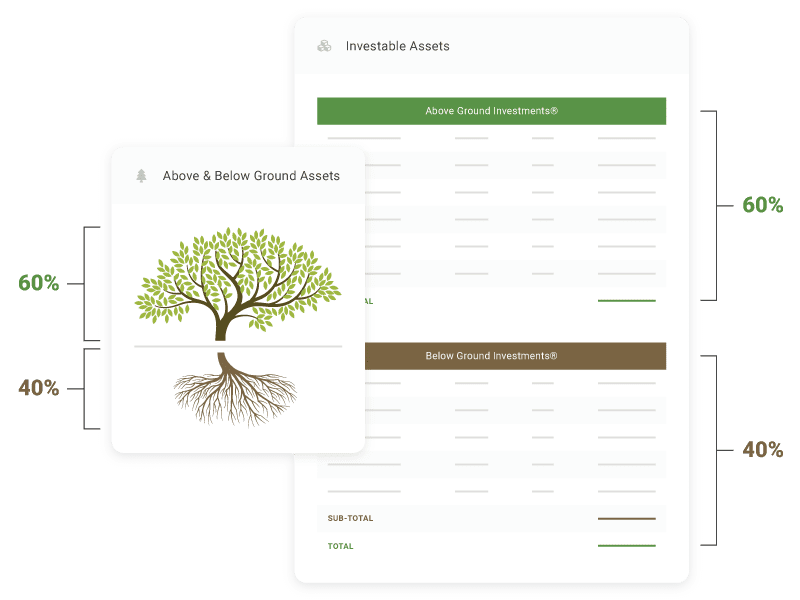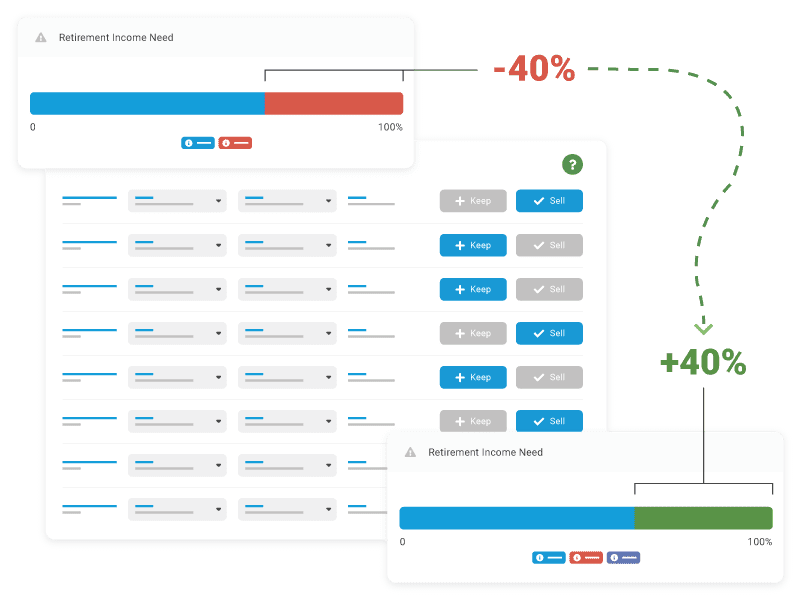Have you sufficiently planned for insurance during retirement?
When considering retirement, many people tend to focus on savings, investments and other financial vehicles that will provide a living wage in their golden years. However, as you approach retirement, it’s important to make sure your insurance needs are also taken care of. Nothing will eat away at a nest egg quicker than if you find yourself in a situation where you’re not covered for something important. Or worse, discover your coverage is insufficient.
Consider Your Retirement Insurance Needs
That said, there are a few things to consider when determining your insurance needs:
- What kind of coverage do you need?
- How much coverage do you need?
- Can you get by with less coverage than you have now?
Taking a moment to sit down and think about your needs during retirement is important. For example, you may not foresee any major medical expenses, but that doesn’t mean they can’t happen. Do you want to make sure your spouse is taken care of financially if you pass away? Will you need healthcare during retirement or perhaps want to alleviate the impact of long-term care? These are just a few things you may want to consider.
While most people have a basic understanding of medical and life insurance, there are other types of insurance to consider as well, such as disability, long-term care and annuities.

Understanding insurance options for retirement – Kaizen Wealth Management
The Different Types of Medical Insurance
It’s no secret the costs of healthcare are rising, which makes it more important than ever to have good medical insurance coverage. For retirees and those on a fixed income, not being able to afford unexpected medical bills can be a harsh reality. Having good medical insurance coverage can help retirees protect themselves and everything they’ve worked so hard for.
There are different options for medical insurance during retirement:
- Medicare: Medicare is a government-sponsored health insurance program for people 65 and over, or for those who are disabled. If you qualify for Medicare, you can choose from a variety of plans, including Part A (hospital coverage), Part B (doctor and outpatient coverage), Part C (Medicare Advantage plans), and Part D (prescription drug coverage).
- Supplemental Insurance: Supplemental insurance gives extra coverage beyond what Medicare provides. There are a variety of supplemental insurance plans available, so you can choose the one that best fits your needs and your budget.
There are also the other traditional insurance options available with your employer’s healthcare plan, including:
- Health Maintenance Organizations (HMOs): HMOs are a type of managed care plan that usually requires you to see doctors and other healthcare providers who are in the HMO network.
- Preferred Provider Organizations (PPOs): PPOs are a type of managed care plan that allows you to see doctors and other healthcare providers outside of the PPO network, but you’ll pay more for services if you do.
- Health Savings Accounts (HSAs): HSAs are savings accounts that can be used to pay for qualified medical expenses. To be eligible for an HSA, you must be enrolled in a high-deductible health insurance plan.
When it comes to medical insurance, there are options that can help to cover a wide range of budgets and medical needs. Choosing the right plan is critical to ensuring you receive proper or necessary care at a rate that you can afford.
Add A Life Insurance Option
No one likes to think about their own mortality, but it’s important to have a life insurance policy in place should something happen to you. This is especially true if you have a spouse or family members who depend on your income. Life insurance can help them financially if you’re no longer around.
There are two main types of life insurance:
- Term life insurance: Term life insurance provides coverage for a specific period of time, usually 10-20 years. If you die during the term of the policy, your beneficiaries will receive a death benefit. If you don’t pass during the term, the policy expires and you (or your beneficiaries) don’t receive anything. For individuals under a group plan with an employer, it’s likely a term life policy. However, these employer-subsidized plans expire upon your retirement, which means there will ultimately be a need to find a new plan to ensure you remain covered.
- Permanent life insurance: Permanent life insurance provides coverage for your entire life. as long as you continue to pay the premiums. There are several different types of permanent life insurance, including whole life, universal life, and variable universal life. If you have questions about permanent life insurance, you can contact your financial advisor or learn more about Kaizen Wealth’s insurance and tax solutions.
Considering Disability Insurance?
If you become disabled and are unable to work, disability insurance can help you replace some of your lost income. This is helpful for retirees relying on a fixed income. Disability insurance can also help you pay for things like medical expenses and rehabilitation costs.
There are two main types of disability insurance:
- Short-term disability insurance: Short-term disability insurance provides coverage for a specific period of time, usually 3-6 months.
- Long-term disability insurance: Long-term disability insurance provides coverage for an extended period of time, usually 2 years or more.

Know the benefits of long-term care insurance – Kaizen Wealth Management
Don’t Forget About Long-Term Care Insurance
One Motley Fool article attests to the importance of planning for long-term care. “According to the AARP, it’s estimated that nearly 3 in 4 seniors will require at least some long-term care in old age. Of those, a quarter will spend at least $50,000 in out-of-pocket costs over their lifetimes. Some will pay much more — nursing homes can cost in excess of $150,000 per year.” As you get older, there’s a chance you may need help with activities of daily living. Bathing, dressing, and eating can be difficult for some. What’s more, if you don’t have family or friends who can help you, you may need to pay for professional care. Long-term care insurance can help you pay for things like in-home care, assisted living, and nursing home care.
There are two main types of long-term care insurance:
- Individual long-term care insurance: Individual long-term care insurance policies are purchased by individuals.
- Group long-term care insurance: Group long-term care insurance policies are purchased by employers or organizations and cover a group of people.
If you’re interested in learning more about long-term care, be sure to read our article about how inflation impacts long-term care and financial planning.
Annuities as an Option for Retirees
What is an annuity? An annuity is a contract between you and an insurance company. With an annuity, you make payments to the insurance company. In return, the insurance company agrees to make periodic payments to you. Annuities serve a variety of purposes, including retirement income.
There are two main types of annuities:
- Deferred annuities: Deferred annuities grow tax-deferred, which means you don’t have to pay taxes on the money you invest until you withdraw it.
- Immediate annuities: Immediate annuities start making payments to you immediately after you make your initial investment.
Finding the Right Fit For You
There are a variety of insurance options available to help you protect yourself and your family financially. It’s important to understand your needs and choose the right type of insurance for you. Once you know what you need, it’s time to start shopping around for the best policy to meet those needs. There are a lot of different options out there. Do your research and compare policies before making a decision.
If you have questions or aren’t sure where to start, talk to a financial advisor. It can be a good idea to get the guidance of an expert with experience. Contact us today and we can help you assess your needs and find the best policy for you. Don’t wait until it’s too late to make sure you have the right insurance in place during retirement. Start planning now so that you can relax and enjoy your golden years.



